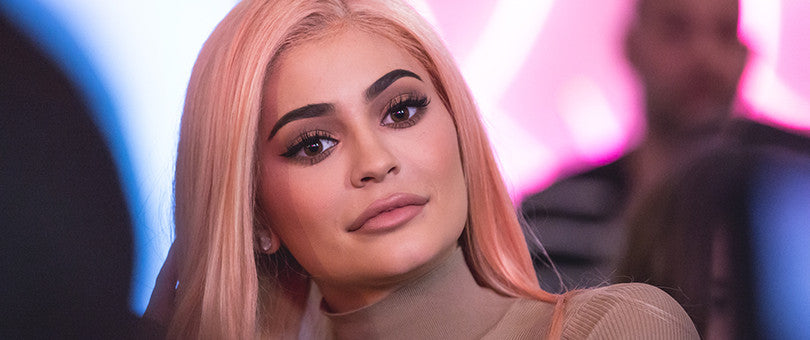A line-up snaked out of sight through the wide walkways of LA’s Wakefield Mall. Hoards of people called in sick and skipped school to be the first to experience their favorite celebrity brand in the flesh.
Until that day in December, Kylie Cosmetics had never lived outside of a website.
From the low overhead to the freedom to work when and where you want, the benefits of running an online business are endless. Many merchants operate solely as ecommerce stores without ever expanding to a physical location. Without ever meeting customers face to face. Without ever having to change out of a Snuggie.
It’s entirely possible to exist only on the internet, and grow into a massive business. In fact, arguably the largest celebrity brand on the internet did just that.
Until the end of last year, Kylie Jenner’s namesake makeup line launched, then exploded, on a single channel: her own Shopify store. She didn’t wholesale her products or offer them in a physical location. To get your hands on a Kylie Cosmetics Lip Kit, you had to buy it directly from the source.

But even Kylie, with brand growth more impressive than the likes of fellow celeb companies, recognized the value of a little face time.
In November, her people called our people, and the idea spun into motion: Shopify would help Kylie take her online-only brand and bring it to life, 2D reimagined in 3D. The embodiment of her brand—ultimately the embodiment of Kylie the person—would teach her so much about her fans.
And, it would teach us a lesson in the power of experiences.
I admit that before meeting with the team that built the pop-up, I was dubious that I could glean anything relevant to the majority of our merchants. "How could a mega-star’s success story possibly relate to the experiences of an average small business?" I thought. But I was wrong.
The one theme that kept emerging in my conversations was that regardless of the size of business or budget, even the simplest human-touch experiences have incredible value for ecommerce brands.
At the 11th hour, the Shopify team employed DIY hacks to get the job done in time for launch day. In the end, it was a clean space—not extravagant—and an attainable template for even the newest brands.
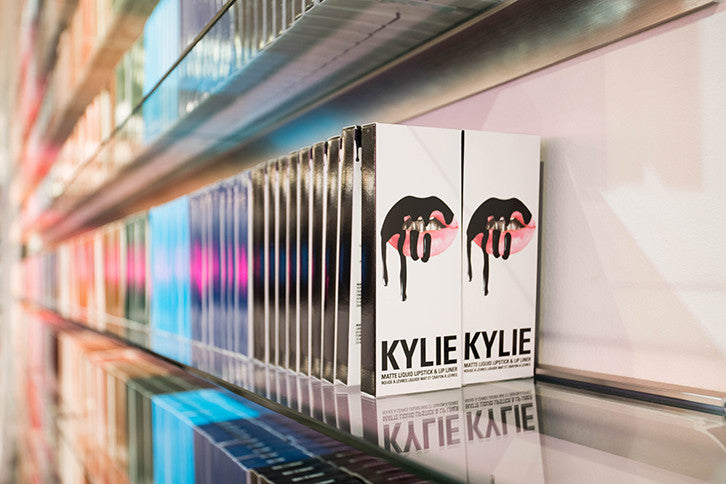

I interviewed the team on the ground about their experiences bringing a massive online brand to life, and their advice for other brands looking to do the same:
- Cody Debacker, Project Champion
- Matt Vaile, Designer
- Natasha Singh, Project Manager
- Rahul Kulkarni, Product Manager, POS
- Michael Brewer, Designer
Special thanks to Jane Lee, Arati Sharma, and Catherine Chiong for additional insights.
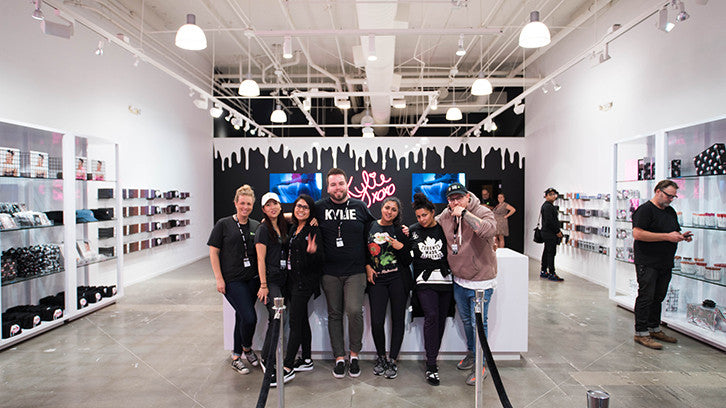
💋 Kylie, the Entrepreneur: read our exclusive interview with makeup mogul Kylie Jenner, and watch videos from the LA and New York pop-ups. 💋
Building Offline Experiences: What we Learned from the Kylie Pop-Up
Why?
Nothing beats the tactile experience of rubbing fabric between your fingers or trying a lipstick against your own skin tone. From a product perspective, the benefits of IRL brand experiences are obvious.
But bringing your brand into the real world has benefits that last long after you’ve closed up shop. “It's more about selling your brand, not the product,” says Michael, “Your website already does that.”
It's more about selling your brand, not the product—your website already does that.
Even if the goal is not sales, or the sales are more disappointing than expected, the exercise can teach you a lot about your product and customers. Who is coming into the space? How are they responding to your products?
“Discover who your customer is in real life. The people who lined up in Kylie’s pop-up were so interesting—the demographics that I saw were mind-boggling. You think you know who your customer is, but you really don't.” – Natasha

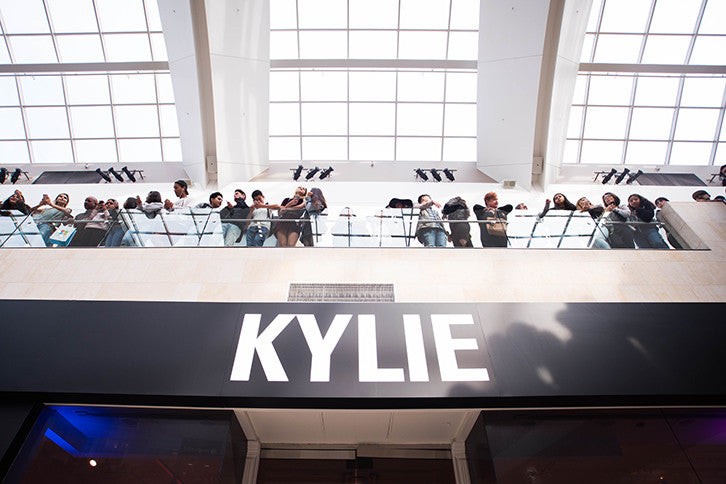
You think you know who your customer is, but you really don't.
Your goal could be to build your brand in a local market, lure people in with the experience and give them a card to get a discount on online purchases later.
"Let's say you didn't sell anything but you got everyone psyched on your brand and you got people going to the site after. They feed each other. You've really just got to think about what you want from that popup. Sales aren't the be all, end all. The popup can be multiple things. It can be brand awareness. It can be looking for partnership.” – Michael
Pop-ups, Parties, Markets, and Experiences
While you may not ever have Kylie’s budget, a 2-week pop-up in an upscale mall isn’t the only way to bring your brand to life. There are several options for smaller budgets if you get creative.
“Think outside of a pop-up, like an open house or a party. You're inviting your people, the people that are already subscribe to your email list, that follow you on Instagram. You're inviting them to attend a holiday get-together. It's a shopping experience but it's not specifically, ‘Come and just buy my stuff.’ It's a party, which also has the option of buying the product.” – Matt

Offline ideas:
- Sponsor an existing IRL event by providing your products for swag bags, etc.
- Partner with a brick and mortar retailer to offer a pop-up experience within an established store
- Host a party or open house in your studio or workspace
- Share the costs by setting up a multi-brand pop-up
- Set up an activation or interactive experience at an event or market (photo booth, etc.)—a great idea for service-based businesses
- Look into markets, fairs, and events accepting vendors in your area
Pairing up with other brands can not only help cut the costs of the event of experience, but strategic partnerships can actually help grow your audience. Partner with brands who have customers that could also be your customers.
“Joint booths are a really cool idea to save money—find a business that has the same feel, the same vibe as you. Maybe you make notebooks and I make something else. We have the same demographic.” – Michael
Joint booths are a really cool idea to save money—find a business that has the same feel, the same vibe as you.
Maybe your brand experience has nothing to do with sales, but to merely build hype, generate press, and increase brand awareness in a specific location. Take cues from the big guns:
"In Toronto, the Weeknd set up a big car with a lightning bolt in it. That could have been it. That alone could have been the pop-up. People would have talked about it forever and they would have went and listened to his album.” – Michael
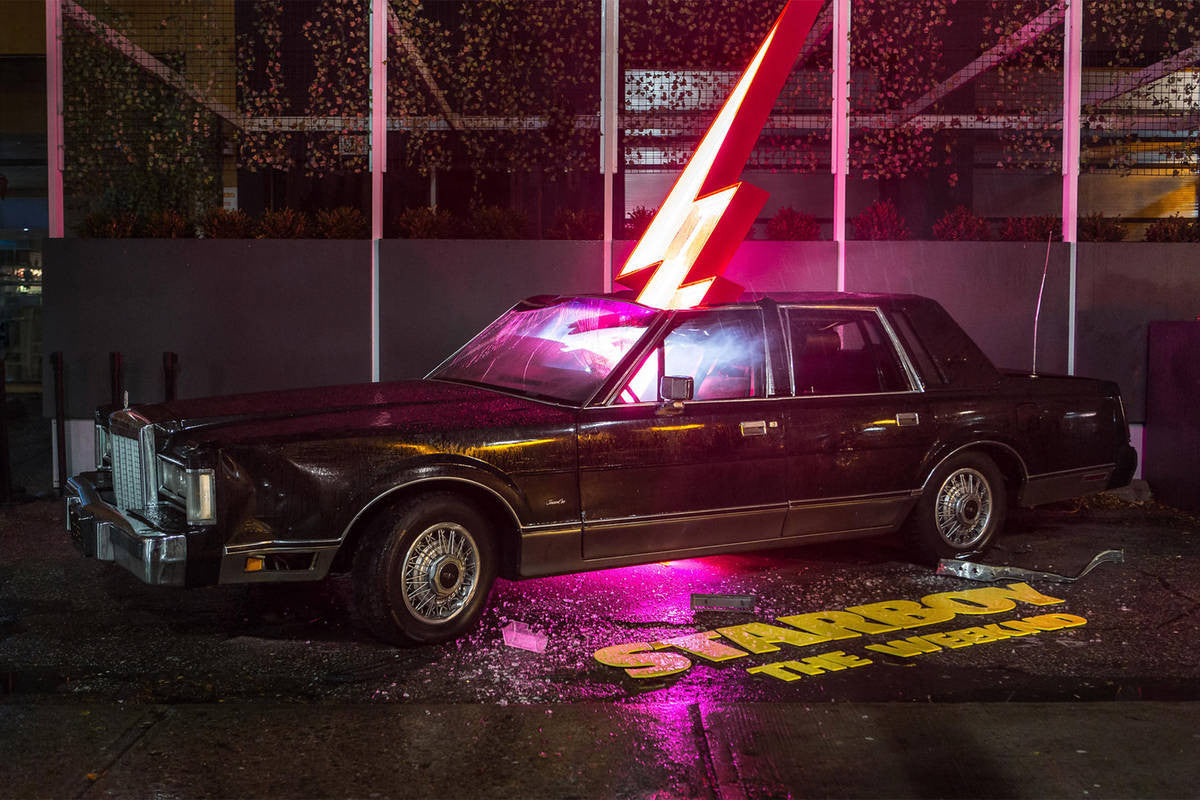
Timing and Location
When is the right time to bring your online brand into an offline space? It will depend on your goals:
- Launching a brand, seasonal collection, or new product
- Unveiling a re-brand
- Running a sale or promotion
- Holiday or gift giving seasons
- In tandem with a limited time event or market that services your target audience
"The lead up to the holidays is the only time of year where people start thinking of shopping for other people. With the Kylie pop-up, we wanted to make sure that customers could shop for gifts.” – Matt
If you’re looking to rent a physical space for a pop-up, form relationships locally:
“Start to build relationships with an established retail store or a boutique to allow you to get into the space. Kylie had a relationship with Westfield. They gave her the opportunity to open the store for two weeks. She took it. I'm not saying she got it for free because she definitely didn't, but find a way to work with someone to help you just to come in on a short timeline.” – Cody
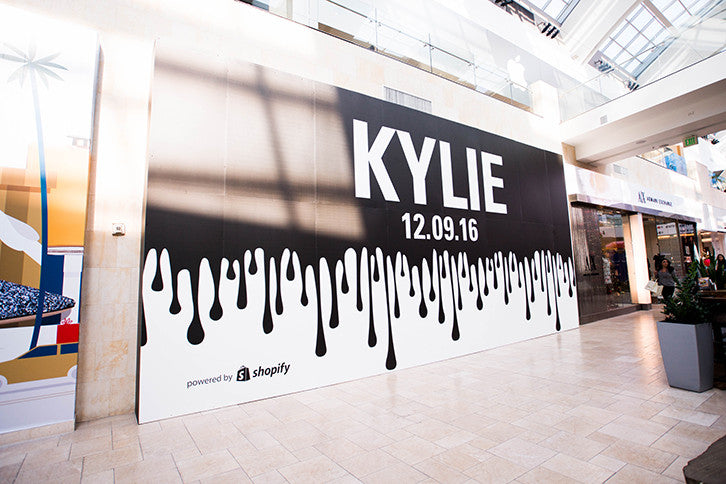
Staffing your IRL Experience
At Kylie’s LA pop-up, we hired an agency to provide 50 staff for the 2-week event. The team invested a lot of the training in the customer experience, and in getting the staff excited and knowledgeable about the brand.
"From the moment you get in line, someone greets you. Someone tells you, ‘Congratulations, you've made it through this eight-hour wait.’ Once you get in, someone greets you. She says, ‘Hey, how are you?’ We had experts on the makeup side. We had experts on the apparel side. They truly talk to you like you were the only person in the room. During the checkout experience, someone's like, ‘Oh my gosh! I can't believe you got this. I love it too.’ Like a friend, like someone who had worked there forever. That's what I took away from this: you need to invest in people.” – Cody
You need to invest in people.
For younger brands, the same strategy can apply on a smaller scale, when staffing a pop-up or event. Anyone can be trained to check out customers on a point of sale system (POS), so look to your networks to find people who already embody and love your brand—friends, family, and even your brand’s loyal customers.
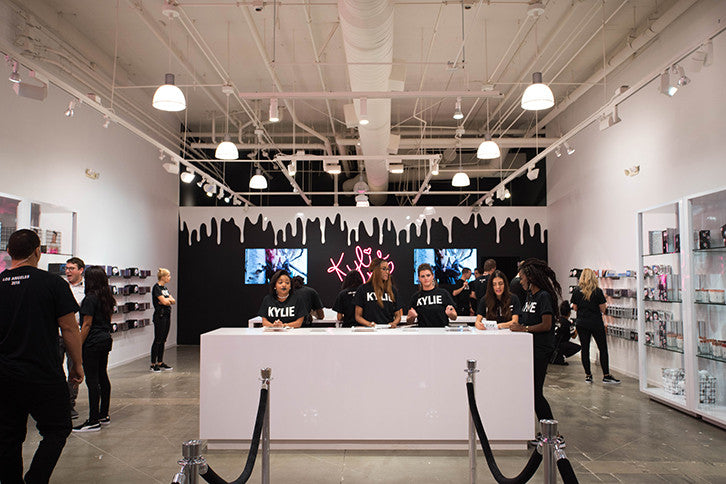
“Your customers probably know your brand just as well as you do. If that means family and friends, if that means people that are already buying, put your time and your energy into them because they're the ones who are going to give your customers the best experience.” – Cody
Find people you trust. Don’t just think, ‘Oh, they're just going to take money.’ These are people who are going to reflect your brand.
How to Pull it off: Building your IRL Experience
Online to Offline Translation
Having a solid grasp on your brand in the online space will help direct how it will feel offline. Ask yourself:
- What do I want people to feel when they walk in?
- What kinds of people am I trying to attract?
- How will my brand translate to things that people can touch, hear, smell, feel or taste?
For Kylie, she and her brand are one and the same. Naturally, a physical representation of that brand was a replica of her own bedroom—a way for customers to get intimate with Kylie, the person.

“If you could imagine walking into your website, what would it look like? You're making a physical representation of your website. Those choices that you've already made about the colors and the photography and the feel and everything, you've already made those decisions. Now make it in real life.” –Michael
If you could imagine walking into your website, what would it look like?
Product
When our team set out to merchandise Kylie’s products, they realized that the Lip Kits had not been designed to sell in a retail setting.
"The challenge was that the product was designed to sell online only. A single lipstick looks the same, except there's this tiny little font on the front of the box that says gloss or matte. It’s a good thing we caught that because someone was actually putting some of the glosses in with the single matte lipsticks. They just look identical. I couldn't even tell the difference. “ – Matt
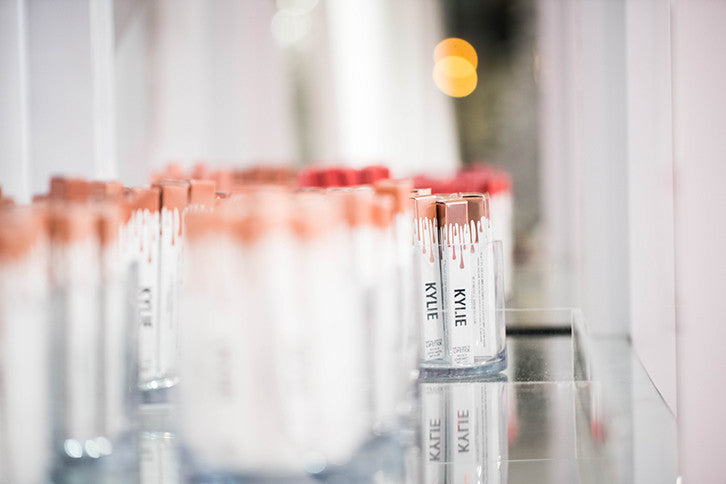
When developing products for online, consider whether or not you might venture into brick and mortar or want to run a pop-up at any point.
- Can your packaging be adapted with tags or tabs to make it easy to merchandise?
- Will you have to develop additional packaging to convey the information normally found on your product page?
- What other products can you create exclusively for the retail experience?
Thinking through these questions at the development stage can avoid headaches down the road.
"What's aesthetically good for online is easy because you take a photo. But they weren’t thinking about how this product was going to look merchandised together. That's a huge thing, especially on a cosmetic level. The way Sephora and MAC create their packaging is very much thinking about those things.” –Natasha
To work around the labelling challenges of the Kylie Cosmetics, the team used merchandising and staff training to help remove frustration from the buying experience.
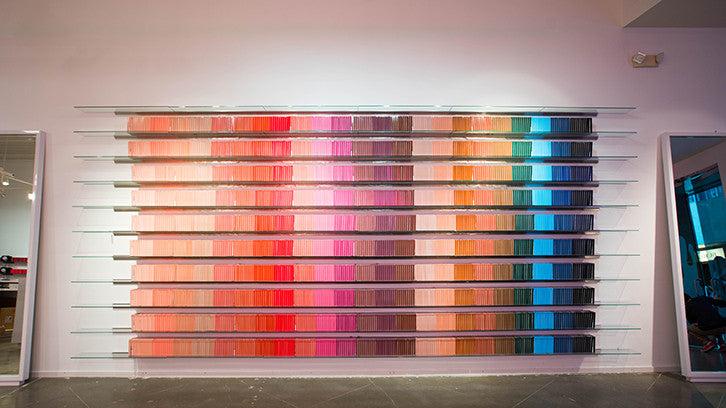
“We needed to put them on separate shelves and even had to train our cash staff to say, ‘Did you want the gloss? Were you looking for the matte? Is this the right one?’” – Matt
Budget
Though our team worked with budgets much larger than the average Shopify merchant, they insist that any merchant can pull off a great in-person experience on a tiny budget. Luckily, minimalism is a current trend, even among big celebrity brands like Kanye’s Pablo pop-up.
"It's about how you source things. It's about how you show your brand within that space. Not about the money and how crazy it is. You'll look at a lot of stores these days and they're going minimal. They're going into nice woods, white walls, rolling racks, a table. It's nothing.” – Michael
So, where do you put your money?
“Honestly: presentation of your product. Whether it's new packaging or little price tags or maybe bags to give people. Remember, that experience doesn't finish once they leave your pop-up. It's when you go home, too. You've got the bag. The unboxing experience. This is important. Do all of that.” – Michael
Remember, that experience doesn't finish once they leave your pop-up.
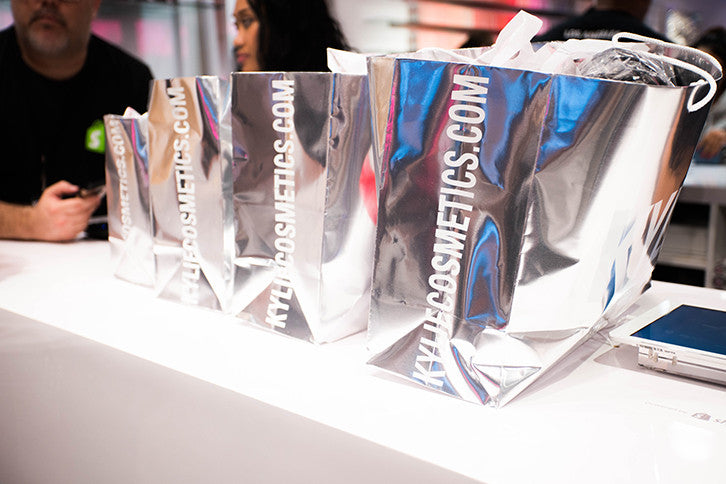
Invest in versatile display items, says Natasha:
"Order a ton of plexis because you can use them in so many different ways. We needed to come up with a quick solution for the iPad stands. You have to be as crafty in those moments. Matt had this idea to apply the iPads to clear plexis, and it ended up looking sleek and sexy. And it cost nothing. Nothing! Probably like 50 bucks in the end.” – Natasha
Merchandising and Display
Kylie’s vision for her first pop-up was a space that allowed her fans to get a peek inside her world. The experience was everything. The store featured a bed made to look like Kylie’s own, and a selfie station that let fans take a piece of the experience home.
Ultimately, the goal was to sell product, however, and our team was challenged to integrate product into the experiences while sticking to Kylie’s vision.
💡 TIPS for merchandising amazing displays and shoppable experiences:
- The best experiences double as displays.
“You should think of the experience and the selling together. People will be more likely to buy something if they're able to take it directly from the active display. That's where the magic happens. It's better than just, ‘Here's a rack of clothes.’ At the Kylie pop up, the Christmas tree had product—even the tree was shoppable.” – Matt
At the Kylie pop up, the Christmas tree had product—even the tree was shoppable.
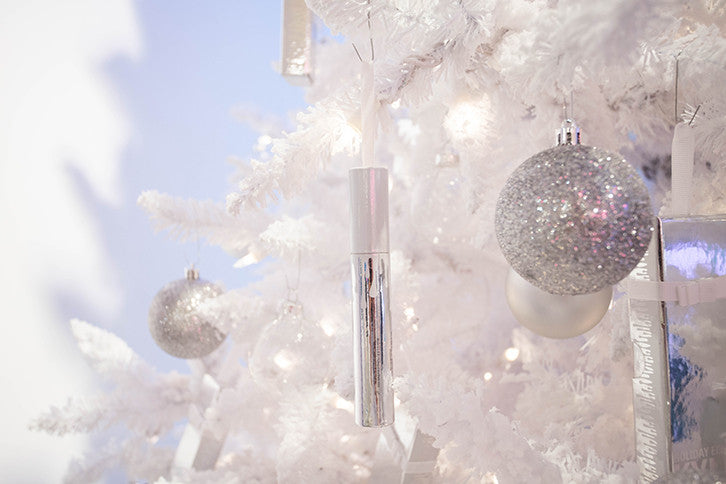
- Multiples of the same item can look impressive, especially when they stack to become their own display. Kylie’s lip kit wall featured over 4800 lip kits on simple shelves, so that the product became the feature. As the display was shopped, it always looked full.
“If you make ornaments, make a thousand ornaments. Put them all on one tree because it'll look really impressive. Or if you make candles, literally have a candle stack from the floor up so as it depletes, it looks cool. It looks like there's an urgency.” – Matt
- You don’t need custom or professional fixtures. When the professional fixtures didn’t work for Kylie’s pop-up, the team scrambled to fill the gaps with very inexpensive and simple display items.
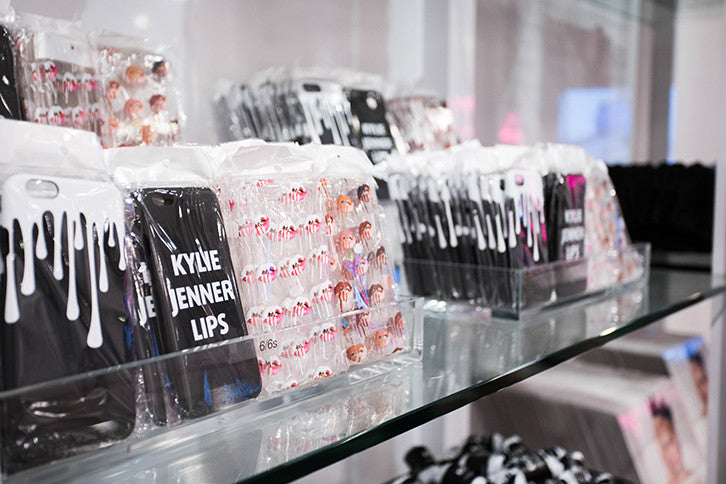
- Source props display items from Target or the dollar store (really!)
“We put in an order for props for all the small accessories. The production company didn't deliver, and we thought, “What are we going to do with the cell phone cases, the underwear, the accessories, the random stuff!?” Matt and I went to the home décor section of Target and we bought little cages. You really can go to Target and buy things that are for your home but actually translate into so many cool ideas.” – Natasha
You really can go to Target and buy things that are for your home but actually translate into so many cool ideas.
- Think of longevity and accessibility. Your merchandising should be beautiful, but if it doesn’t stand up to customer handling, or is difficult for the customer to shop, you’ve failed. At the Kylie pop-up the team made compromises on the ultimate Lip Kit wall to ensure clarity between gloss and matte.
- Establish a replenishment strategy. How will you keep the displays looking full? What happens when you run out of something? Will some sizes/styles be kept in the back with only a few samples on the floor? Have the stock area of the space organized and accessible for quick replenishment.
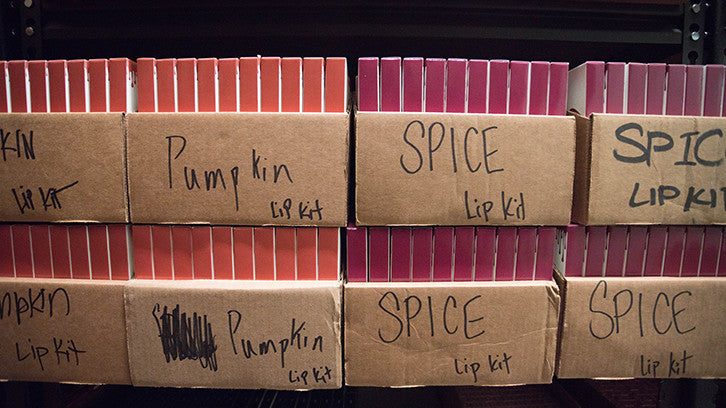
POS: Taking Payments IRL
Taking payments is the last thing many merchants think about when they’re setting up a pop-up, says Rahul, and with a brand as huge as Kylie, it was no exception.
“For most merchants who are trying to build a pop-up or retail space, POS is literally an afterthought.” – Rahul
Shopify POS powered Kylie’s pop-up and the team carefully considered how customers would interact with payments, minimizing it as much as possible to keep the focus on the brand.
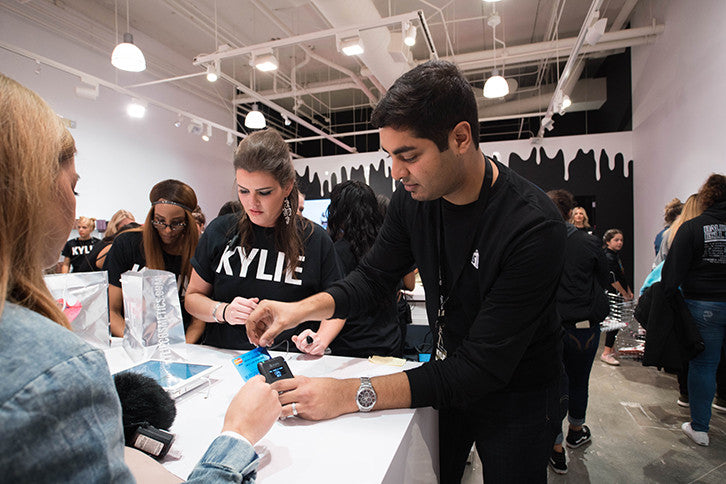
"When customers were coming into the store, they were getting wrist-banded, entering their customer information there. When they come to the checkout, we ask them their name, and then we would just automatically send them a receipt. It made it a better and more personal experience for the customers." – Rahul
Consider, too, how you will handle customer service issues like returns and exchanges. You may have an app or process that helps you manage these occurrences for your online store, but they can be tedious in person, especially in a temporary retail setting.
"With Kylie, we decided on the final sale policy because the reality is, when you're running a pop-up, you want to actually enhance the great purchase experience. You're not outfitted to do the best customer service.” – Rahul

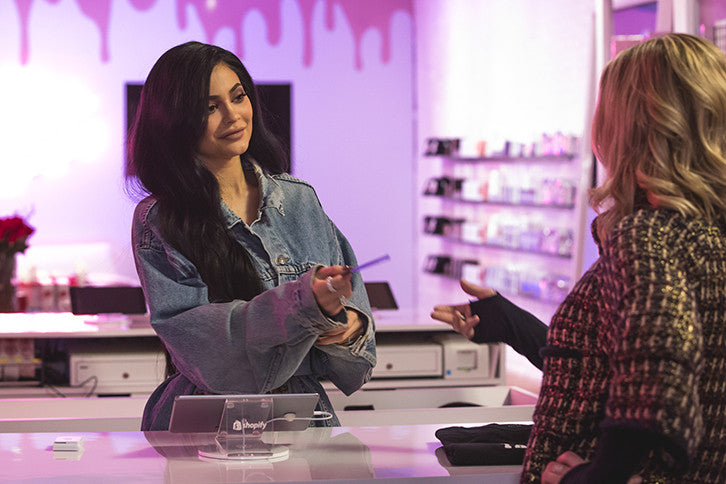
The Power of Experiences
The customer expectation is that the in-person experience will offer value beyond the online experience. Kylie’s pop-up not only encouraged customers and fans to interact with and socially share the space, it was also the only destination for sold-out colors, and new products introduced just for holiday.
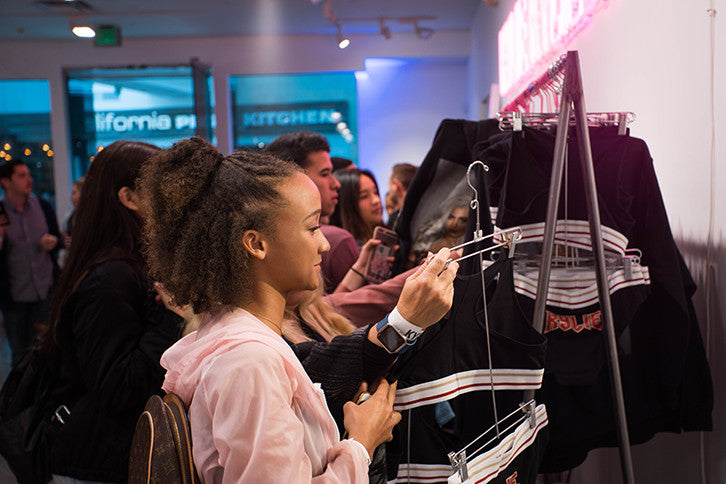
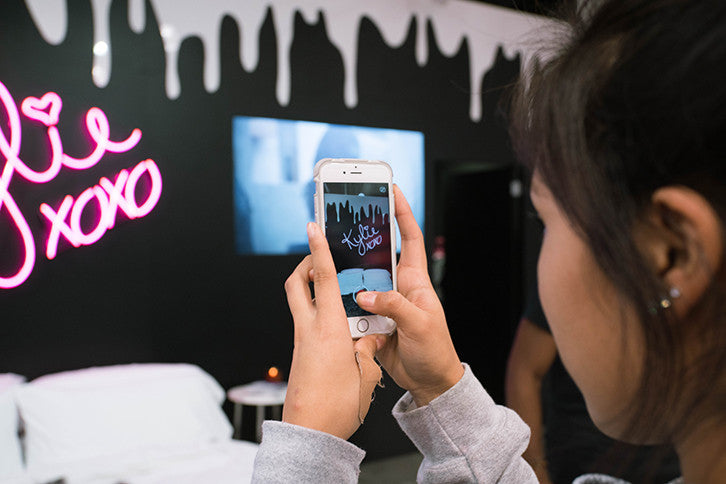
A few experiential ideas:
- Selfie stations and photobooths
- Drink or snack stations with signature cocktails or flavours—partner with a local craft distillery or an emerging catering business
- Try-on experiences—testers, makeup artists, personal stylists, fit rooms
- An interactive or DIY experience
- Engage the senses with scent marketing or sound branding
- Workshops or classes in your space (incorporating your product)
- Exclusive products and deals
- VR experiences
- Live music
Remember that you are your brand, and that you should be a big part of that experience. Use the face time with customers to tell your story. Even Kylie took the opportunity to get personal with her fans.
The most important lesson we learned from bringing one of the biggest celebrity brands to life? Less is more. Don't cloud your brand story with too much fanfare. Ultimately, the experience we built with Kylie was a simple design with inexpensive fixtures that let her brand shine.
“We did this whole lavish thing when we first started building her store. We built it as a retail makeup outlet, like a Sephora. It was so intense. Then she showed us the Pablo popup. It was a really cool place with four rolling racks and a massive vinyl. That's all it was. It's affordable for anyone.” – Michael
(Update: The LA pop-up proved a successful experiment for Kylie's brand, and just two months later, Shopify recreated the experience during New York Fashion Week, shutting down a whole Manhattan street.)
